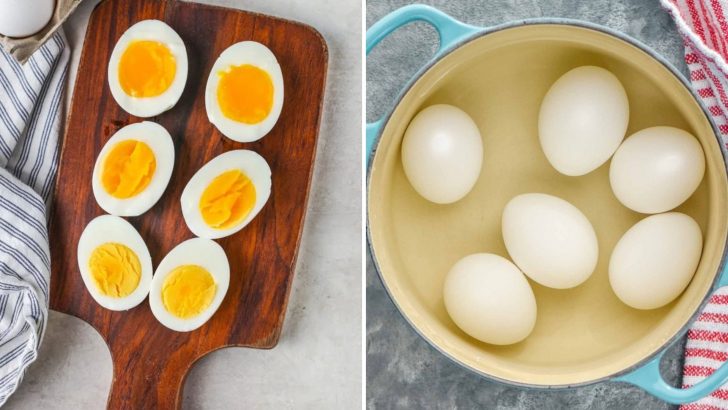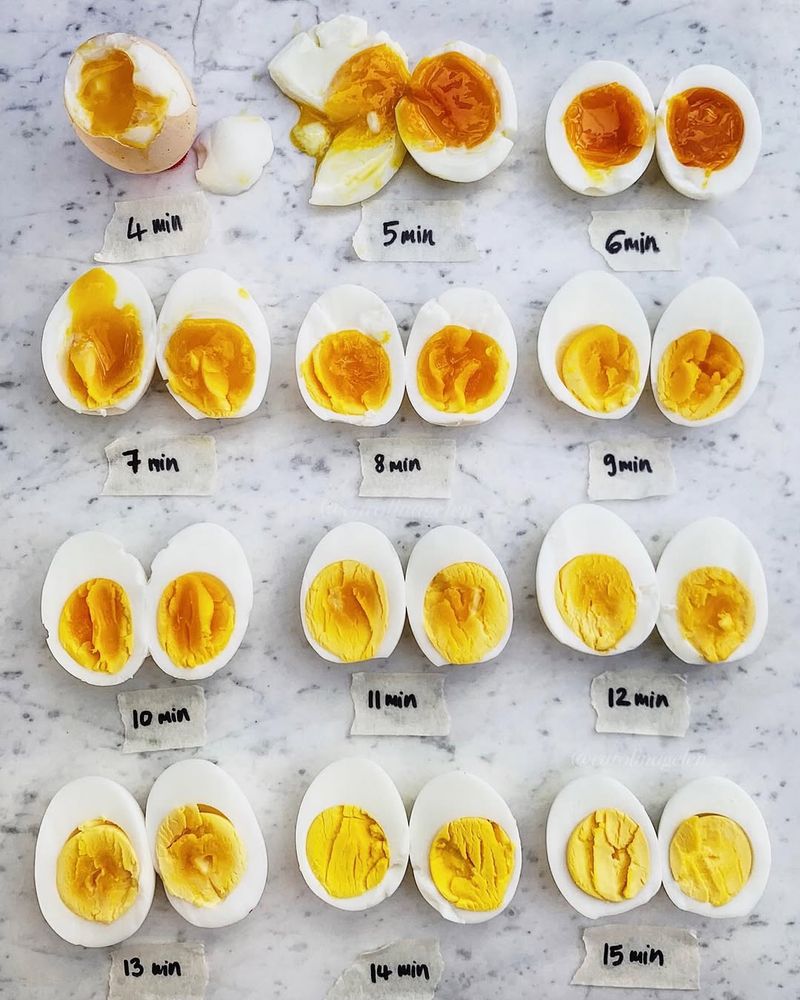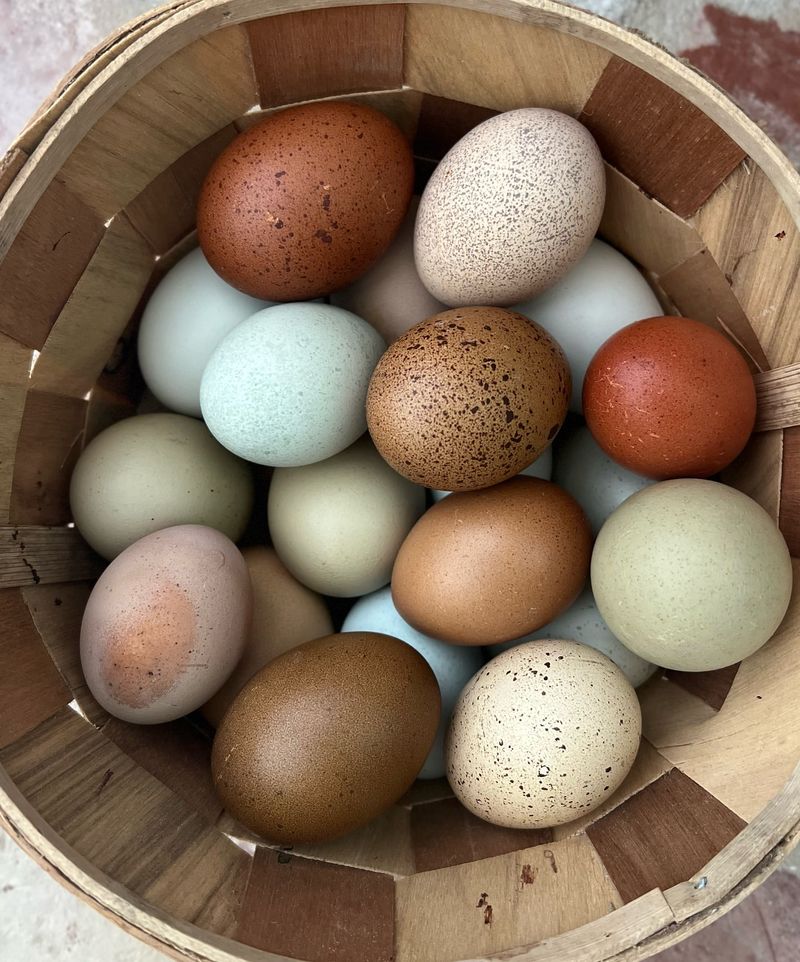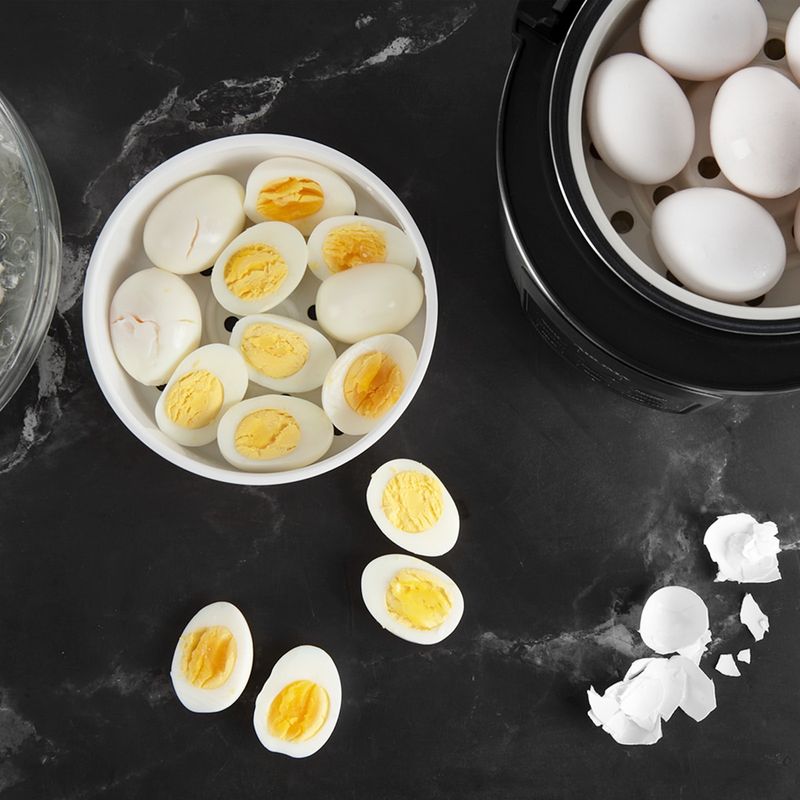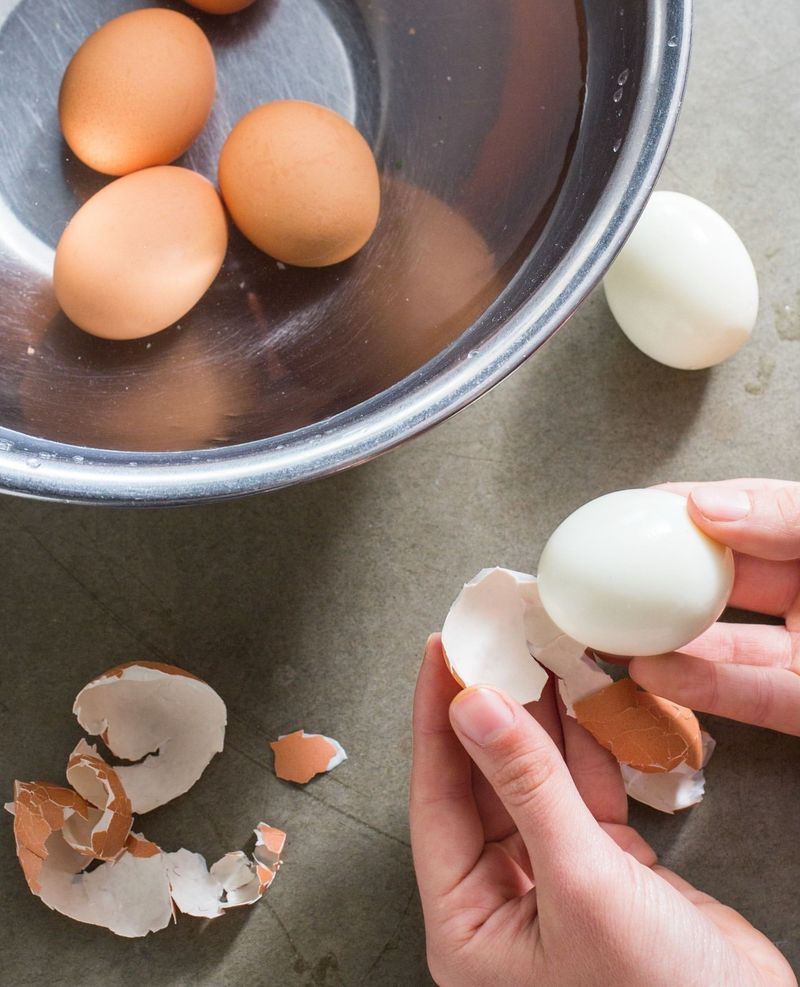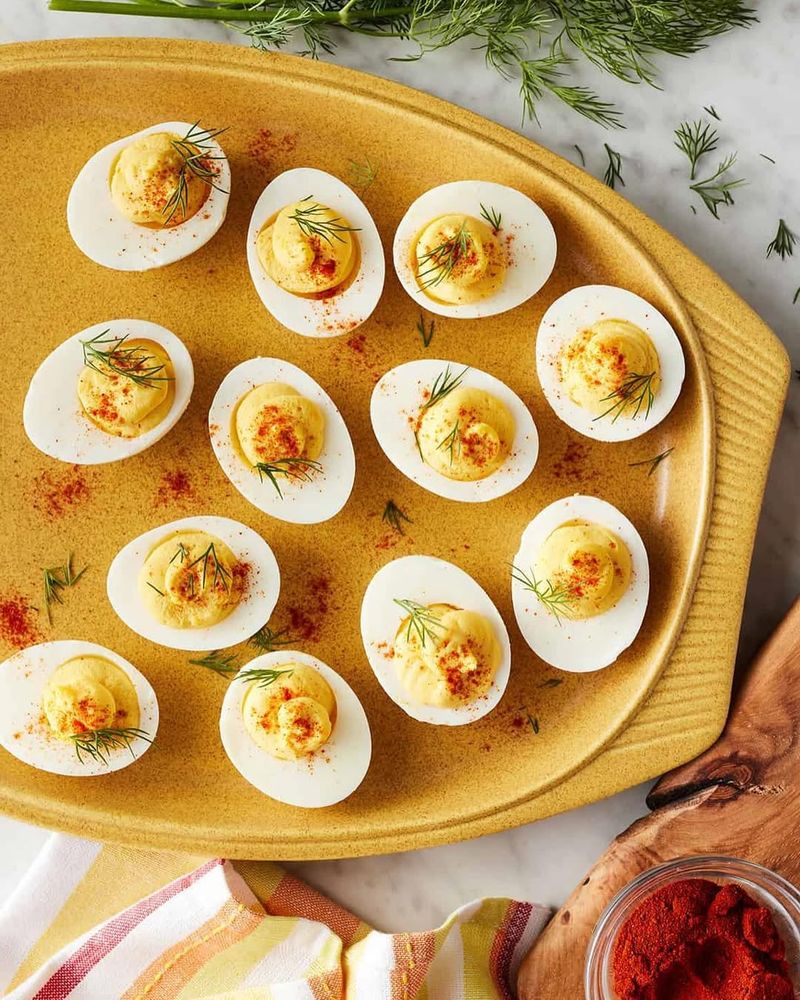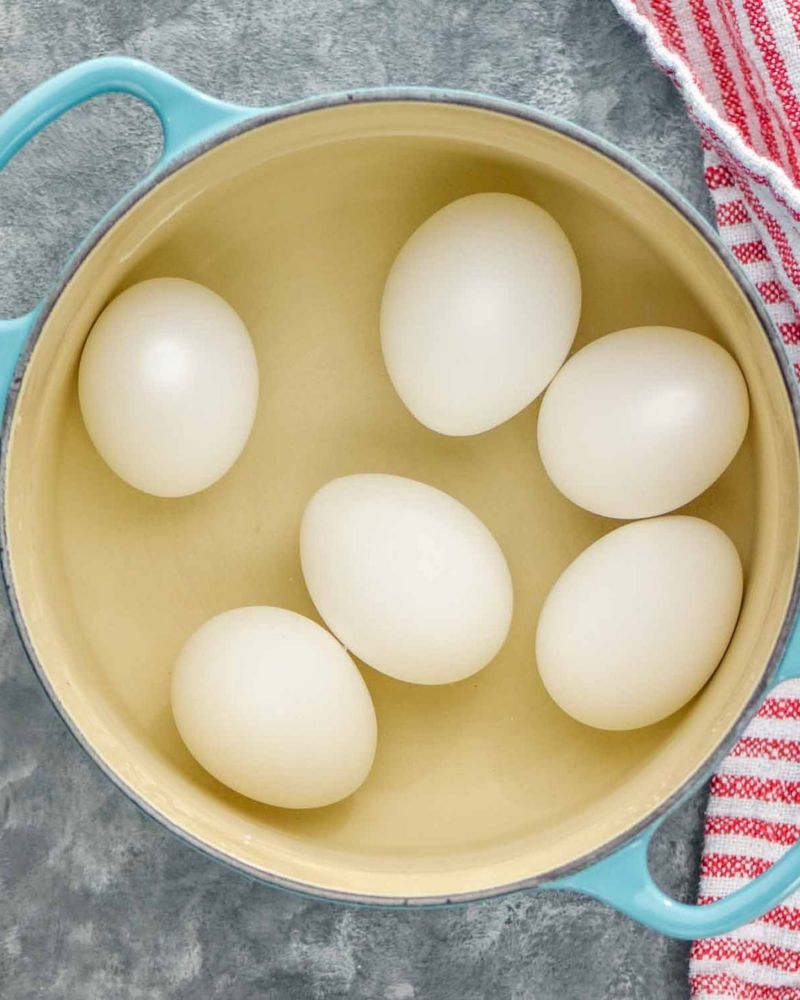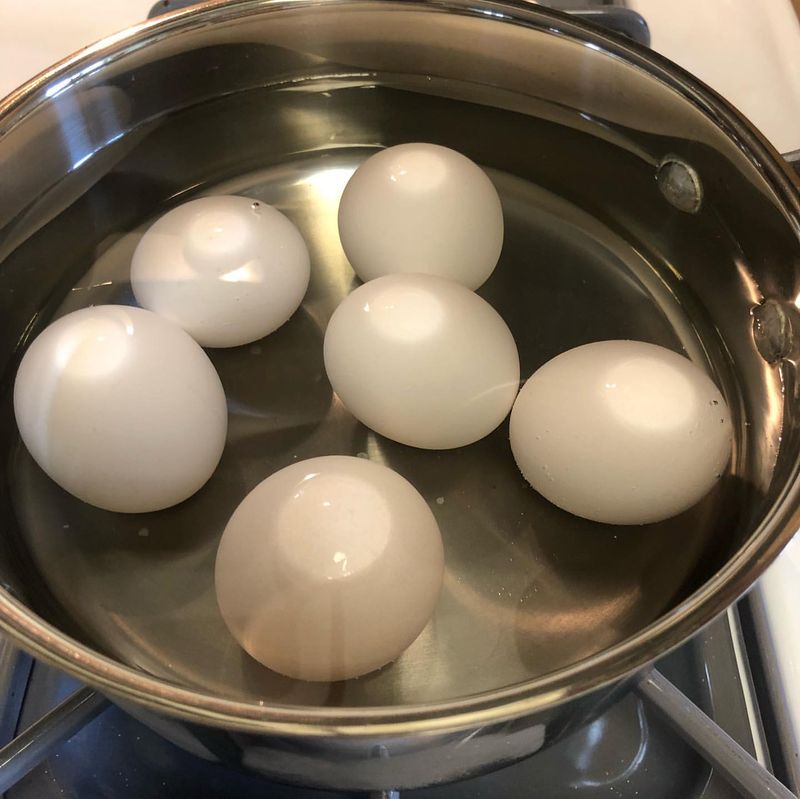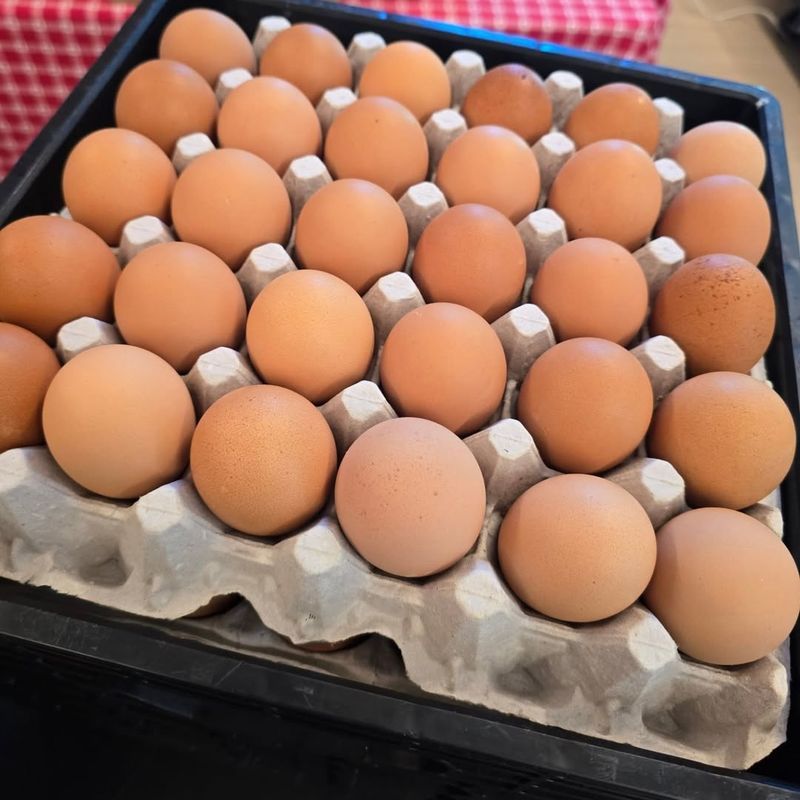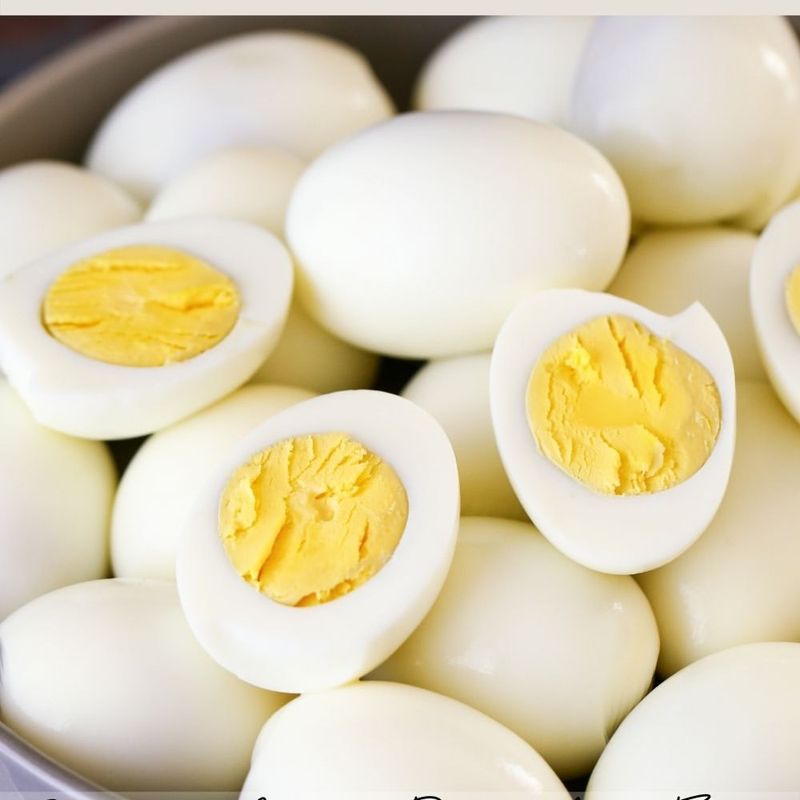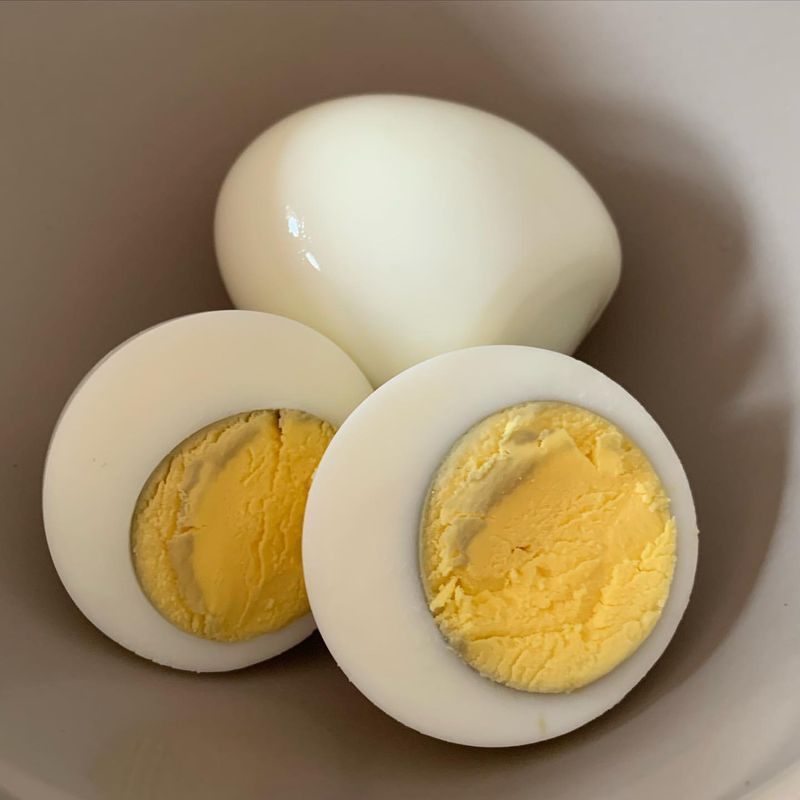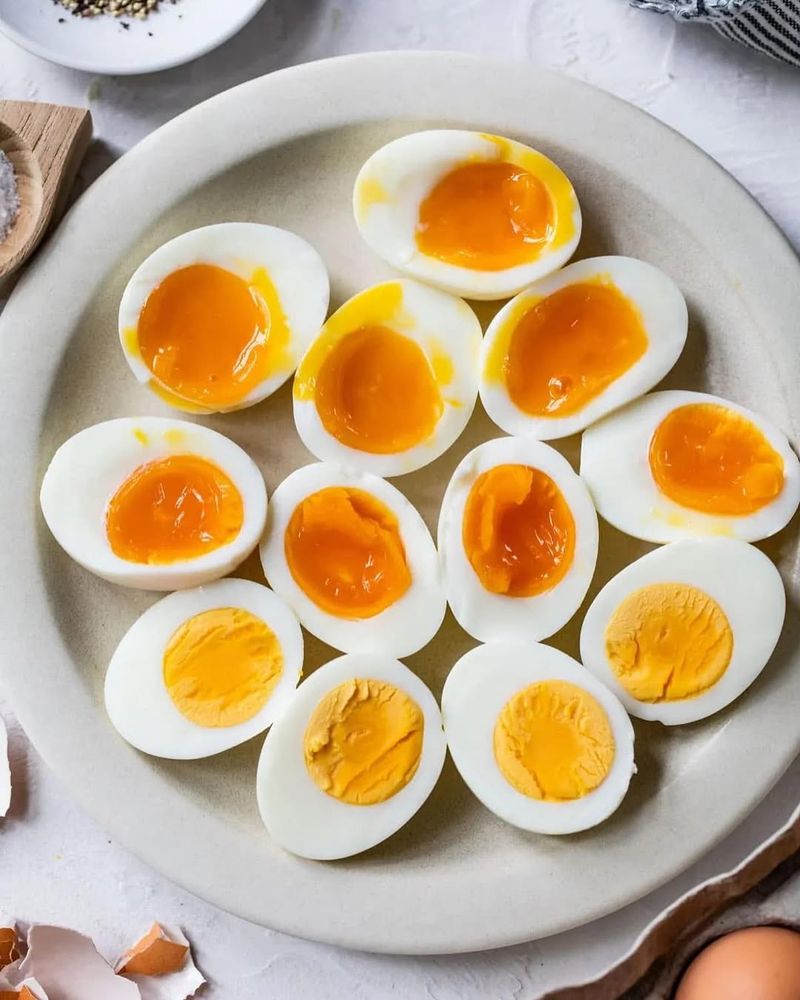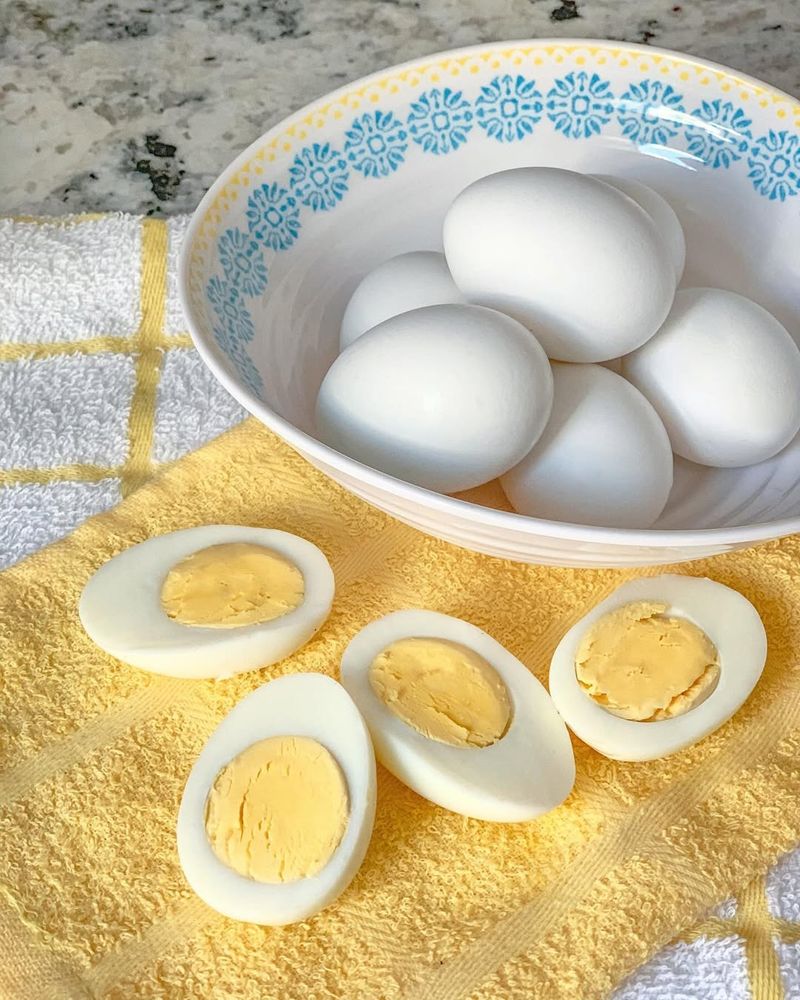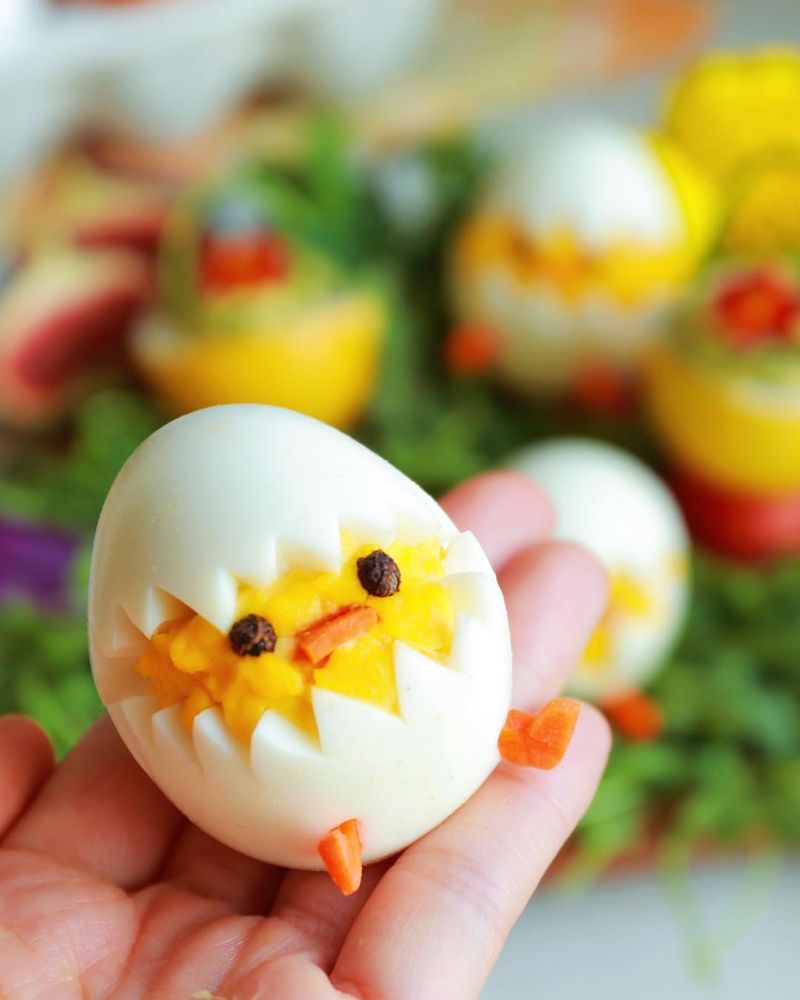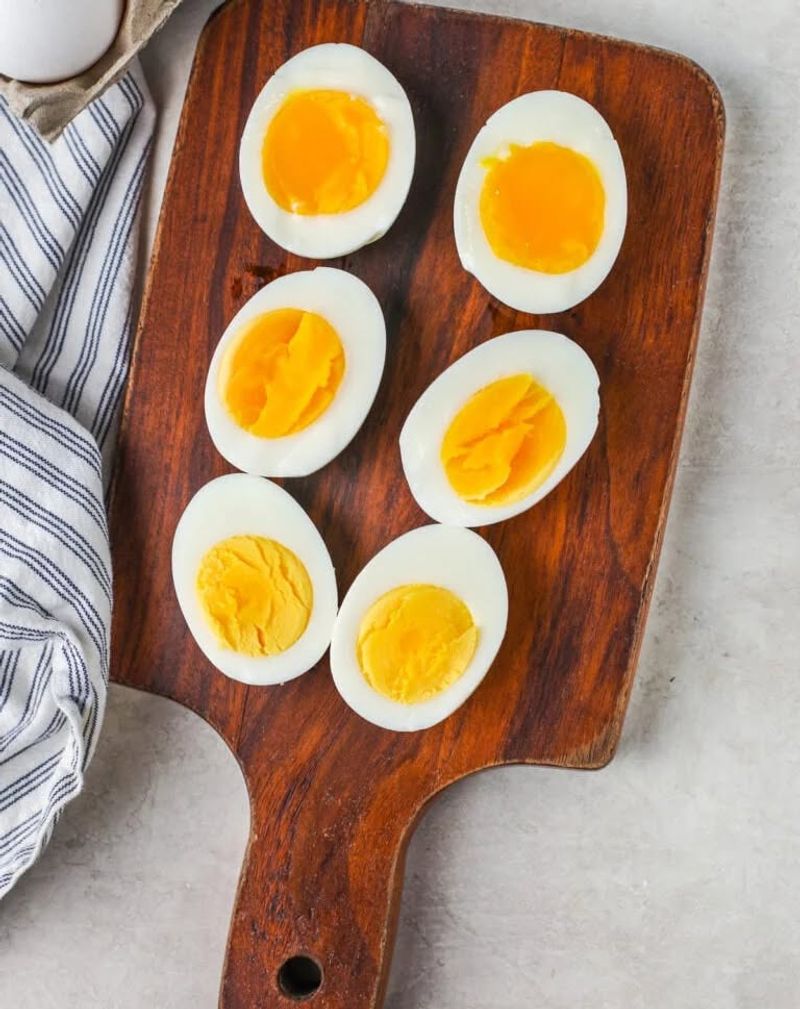Have you ever found yourself pondering over the humble hard-boiled egg? This versatile and nutritious delight is more than just a breakfast staple. Join me as we uncover fifteen fascinating facts about hard-boiled eggs that will surprise and delight you.
From cooking tips to nutritional insights, there’s a world to explore in this seemingly simple food. Let’s crack open the mystery and discover what makes these eggs truly extraordinary.
1. Perfect Timing
Timing is everything when boiling eggs. If you want that perfect golden yolk, you’ll need to boil them for exactly 9-12 minutes. Any less, and they might be too runny for your taste. Longer, and you risk a chalky texture.
It’s a bit tricky! Let them cool, then peel. This process makes them much easier to handle. Simple adjustments in time can make all the difference.
2. Colorful Shells
Eggshell colors can vary! Though most people picture plain white eggs, they actually come in many colors. Brown, blue, and even green eggs exist, thanks to different chicken breeds.
These colors don’t affect the taste, but they sure make for a prettier presentation. They’re a fun and creative way to play with egg colors. Experiment with different breeds to find eggshell colors that suit your style. A colorful twist on a classic!
3. Nutritional Powerhouse
Packed with nutrients, hard-boiled eggs are a powerhouse of goodness. Each egg contains high-quality protein, vitamin D, B12, and essential amino acids. They’re perfect for a balanced diet.
In fact, they can contribute to overall health. So, indulge in this nutritious snack and enjoy the benefits it brings to your body. It’s like nature’s multivitamin in shell form.
4. Peeling Perfection
Peeling eggs doesn’t have to be a struggle. If you’ve ever had trouble, you’re not alone. Older eggs are easier to peel after boiling, as the aging process helps separate the membrane.
Some tap gently, others roll them on the counter. Experiment to find your method. Try adding a bit of baking soda to your boiling water. This simple trick can make peeling a breeze, ensuring a smooth and frustration-free experience.
5. Culinary Versatility
Hard-boiled eggs fit into countless recipes. Whether you’re crafting a salad, sandwich, or deviled eggs, they add both taste and texture.
Their firmness and mild flavor blend seamlessly with various ingredients. From picnics to parties, they’re a crowd-pleaser. Experiment with different recipes to find exciting new ways to enjoy them. Culinary creativity begins with a simple egg!
6. Storage Hacks
Storing hard-boiled eggs properly ensures they stay fresh. Once boiled, keep them in the fridge for up to a week. If peeled, store them in a container with a damp paper towel.
Mark the date on the container to track freshness. It’s a smart way to avoid spoilage. Have you tried freezing? While not common, it can work in a pinch. Understanding storage tips keeps your eggs at their best.
7. Cooking Methods
Cooking methods for hard-boiled eggs vary, and each has its benefits. You can boil them traditionally or use an egg cooker. How about trying sous-vide for precision?
Each technique offers something different. Some prefer steaming for even cooking. Others enjoy the convenience of an electric cooker. Finding the right method for you may lead to discovering the perfect egg every time. A culinary adventure awaits with each technique!
8. Egg Freshness Test
Testing egg freshness is simple and effective. If you’re unsure about your eggs’ age, try the water test. Fresh eggs sink, while older ones float.
Why does this happen? Air enters through the shell as the egg ages, increasing its buoyancy. It’s a natural process. Have you ever tried this? A quick test provides peace of mind, knowing your eggs are fresh and ready to eat. It’s a handy trick for any home cook.
9. Cultural Significance
Eggs hold a special place in cultures worldwide. From ancient rites to modern celebrations, they’ve been symbols of life and renewal.
In Europe, they were once considered a simple, portable protein source for travelers and workers. From ancient civilizations to modern kitchens, hard-boiled eggs have remained a staple food, valued for their symbolism, nutrition, and versatility.
10. Egg Size Matters
Not all eggs are created equal. Size can affect cooking time and texture. Large eggs are standard in recipes, but medium or jumbo may require adjustments.
Experimenting with sizes allows for endless culinary exploration. Each offers a unique experience, adding a new dimension to your cooking adventures. Embrace variety and see how it influences your favorite dishes.
11. Green Yolk Is Safe To Eat
A greenish-gray ring around the yolk of a hard-boiled egg may look unappetizing, but it is completely safe to eat. This discoloration is caused by a harmless chemical reaction between the sulfur in the egg white and the iron in the yolk, which occurs when eggs are overcooked or cooked at too high a temperature.
While it may slightly affect the texture, the egg remains nutritious and perfectly fine to consume. To prevent green yolks, try boiling eggs gently and cooling them quickly in an ice bath after cooking.
12. Egg Whites & Yolks
Egg whites and yolks have distinct qualities. Whites are rich in protein, while yolks contain vitamins and healthy fats. They’re perfect together or separate.
They offer versatility in recipes andboth have unique roles. Experiment with separation to unlock new culinary possibilities. Understanding their differences enhances your cooking skills, making every dish a masterpiece.
13. Egg Safety
Food safety is crucial when handling eggs. Proper boiling kills harmful bacteria like Salmonella. Ensure they reach a safe temperature by boiling thoroughly.
How do you ensure safety in your kitchen? Perhaps you use a thermometer or trust your timing instincts. Have you considered storage practices, too? Freshness and proper handling keep you safe. Embrace these principles, and enjoy peace of mind with every delicious bite.
14. Egg Art
Egg art transforms the ordinary into the extraordinary. Why not try creating your own masterpiece? Decorating eggs is a joyful and artistic activity. You don’t need to be an artist to enjoy it.
Bring out your creative side, and explore the world of egg art. Each piece tells a story, adding a personal touch to this timeless craft.
15. Good For Your Heart
Eggs have long been debated for their cholesterol content, but research shows they can actually be good for your heart when consumed in moderation. While egg yolks do contain cholesterol, they also provide essential nutrients like protein, omega-3 fatty acids, and antioxidants that support heart health.
Dietary cholesterol from eggs has little impact on blood cholesterol levels, as the body regulates its own cholesterol production. In fact, eggs can help raise HDL (“good”) cholesterol, which is linked to a lower risk of heart disease.

